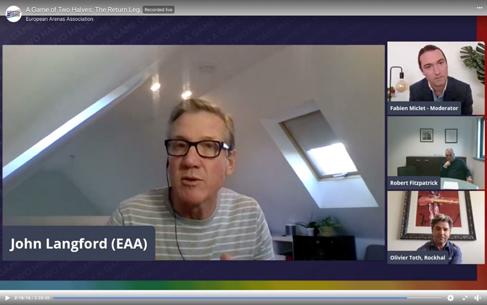Comment
Turning Adversity into Opportunity Mark Bennett, founder of agency MBA Live, describes the fall and rise of his career trajectory in the wake of tragedy and privation, and how he fought back using self-care and positivity
E
very year, one in five people in the UK experience mental health issues, and in a year like no other, mental health has become an even greater issue. With the music business facing such uncertainty, people are struggling, many of whom have never experienced these issues before. In our industry, discussing the topic of one’s own mental health can be seen as a weakness. But in spite of recent years being the most challenging of my life, today I am mentally the strongest I have ever been. I joined The Agency Group in 2013 with no roster and limited connections. I worked tirelessly to sign artists and network, going to gigs every night, taking every meeting I could, and attending every possible industry event. I loved it. However, sometimes we can get lost in the pursuit of our ambitions, and eventually my health was affected. At the start of 2016, I was hospitalised with GERD, acid leaking from my stomach, forced to work from home. I was due to return to the office on 15 February, after a trip to Sweden for Where’s The Music. In a heartbreaking turn of events, my clients Viola Beach and their manager, Craig Tarry, died in a tragic accident a few hours after performing at the festival. Nothing could have prepared me for the situations I would face in the aftermath while struggling to grieve for each of the five men, whom I called friends. I tried to give as much comfort as possible to their families, and it wasn’t until later that I realised the effect it all had on me. A few weeks after the accident, my mum became ill and two close personal friends also suddenly passed. The combined pressure of my work, home, and personal life being in turmoil, without a support network, made me feel very isolated and lonely. I have never been one to ask for help, and in those moments, I wasn’t sure how. I believe there were people who wanted to help, but I don’t think they knew how either. Over the next two years, I became despondent, paranoid, irrational, and short tempered. I fell out with people. I stopped doing things I loved. I was miserable. Changes were needed, but as I started to make positive steps, I had a huge setback. A few weeks after leaving an agency, I watched helplessly as my roster started to appear on other agen-
cies’ websites. Every agent and promoter knows the feeling of frustration and powerlessness when losing a client. I had been incredibly proud of my client retention rate and losing nearly my entire roster in a short space of time was tremendously painful. But I used the fact that I never had the urge to quit as motivation. I realised that I was doing what I loved and had to fight my way back, just as I had fought my way in. I opened up to friends and loved ones, and with their support, put my energy into making small steps each day. Ben Kouijzer, a friend and colleague, reinvigorated my passion for reading by suggesting (audio) books that opened my mind to the importance of sleep, exercise, and health. These, in turn, contributed to positive thinking, understanding gratitude and goal setting. This gave me the foundation to grow, understanding that change is inevitable, and that everyone experiences setbacks and knockdowns. It’s not about why something is happening but about how you react. I took this knowledge and invested in myself. I set short-, medium-, and long-term goals, created healthy routines, exercised, visualised my future, and made time for doing things I love, including the one passion that never left – live music! Starting my own agency, MBA Live, has given me the freedom to grow and service my clients on my terms, cultivating my own passion. I’m grateful to the artists and managers that trust me to deliver, the promoters that always take my calls, and to my wife, Polly, whose support has given me the foundation to create and build a profitable business, even within the difficulties of the global pandemic. If you are reading this and are finding things difficult, understand that you are not alone. It isn’t a weakness to ask for help – it takes strength to start the conversation. Everyone is different but the most important thing is to seek professional help. I’m encouraged by the efforts being made by people in power to make a positive change to ensure there is support for people when they need it, and more importantly, to identify issues and offer help before it’s needed. It’s not always easy to ask for help. If you see someone whom you think is struggling or acting out of character, then reach out and check in with them. It will mean more than you think.
Magazine
15










